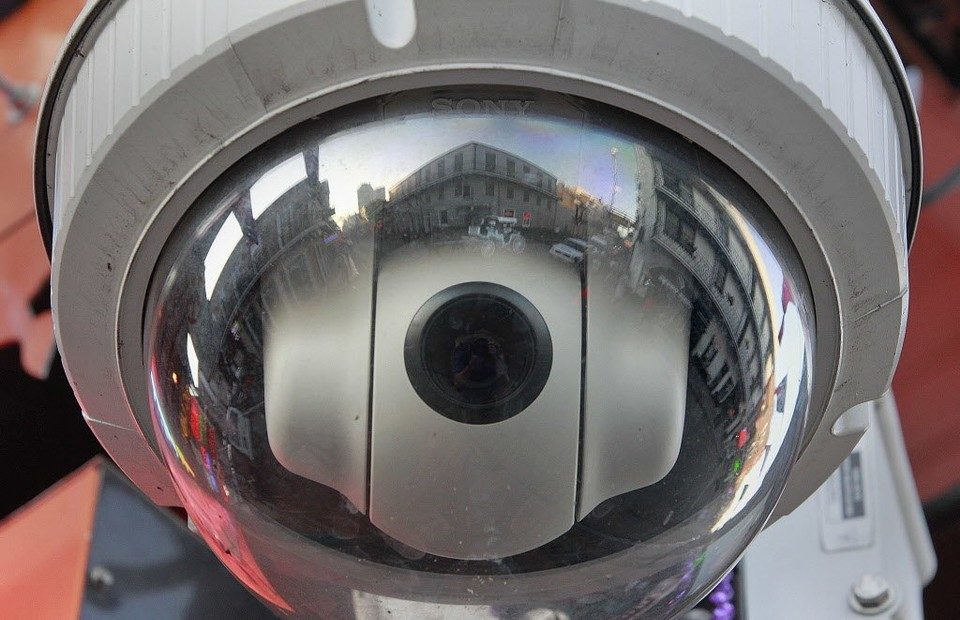Mitch Landrieu’s safety plan is suddenly camera shy | Opinion

By Tim Morris
So, it looks like the New Orleans City Council will not be taking up Mayor Mitch Landrieu‘s unpopular plan to require every alcoholic beverage outlet in the city to install and connect surveillance cameras to a citywide monitoring system.
It’s as if the liquor outlets bounced the mayor’s government-mandated camera plan with, “You can continue spying all you want, you just can’t do it here.”
City Councilwoman Stacy Head, who sponsored the proposed ordinance at Landrieu’s request, told the Lens on Tuesday (March 20) that she was withdrawing the plan and would replace it with it measure the will only change which city department issues liquor licenses.
“I don’t believe that there was an appetite for it to pass in this council, particularly with the concerns people expressed with the surveillance and some of the more controversial language in this ordinance,” Head told the Lens.
The proposed ordinance, which would have added at least 1,500 surveillance cameras to the city’s network, certainly had collected an impressive list of opponents, including the Louisiana Restaurant Association, the American Civil Liberties Union, the Music and Culture Coalition of New Orleans and plenty of others who were generally creeped out by the idea that government was forcing private businesses to help them spy on fellow citizens, not to mention paying customers.
The fact that New Orleans has so many places selling liquor — pharmacies, gas stations, grocery stores and even some gyms — turned out to be both a strength and a fatal flaw in the plan.
Landrieu’s office tried to do its best to make the defeat look like a strategic retreat, declaring that the ordinance will “require more discussion and careful consideration by the next council and administration. Therefore, we have requested the council withdraw this item.”
The mayor’s office also noted that “the Landrieu administration has moved aggressively to tackle violent crime in our neighborhoods,” and that the publicly owned crime cameras and license plate readers “are already helping the NOPD prevent and solve crimes.”
The cameras were a key part of a $40 million crime-prevention strategy that Landrieu unveiled in January 2017. The plan was to put cameras outside every business licensed to sell alcohol. Those cameras would then feed images into what the city now calls its “Real Time Crime Center.”
We don’t know what kind of impact it had on criminals, but the plan made a lot of law abiding citizens jittery.
The Louisiana chapter of the American Civil Liberties Union called it government surveillance “on steroids” with no real evidence that it would reduce crime.
“When government has access to this kind of surveillance, they can track your movements, find out who you’re visiting, find out who you’re talking to,” ACLU staff attorney Bruce Hamilton said. “That could lead to getting more specific information about your day-to-day activities.”
And we can expect the city will be just as careful, considerate and vigilant with that information as say .. Facebook.
The withdrawal of the proposed ordinance looks like a victory for civil liberties, but the city may not be giving up the Lens reports that bars that violate the city’s liquor laws may still have to install cameras.
The Alcoholic Beverage Control Board, which deals with liquor license violations, signed consent decrees with two bars requiring installation of cameras “providing a live feed to the city’s Real Time Crime Center,” the Lens’ Charles Maldonado reports.
The affected bars are Chuck’s Sports Bar in the Central Business District and the Hangover Bar in the Seventh Ward.
That sure looks like a backdoor to getting the front door cameras.
“It does seem somewhat like an end-run around” the passage of a law, Ethan Ellestad, director of the Music and Culture Coalition of New Orleans, which has campaigned against the surveillance ordinance, told Maldonado.
“They can still put in a proviso that anyone who goes before the ABO board has to be part of that network,” he said.
Big Brother doesn’t go away that easily.